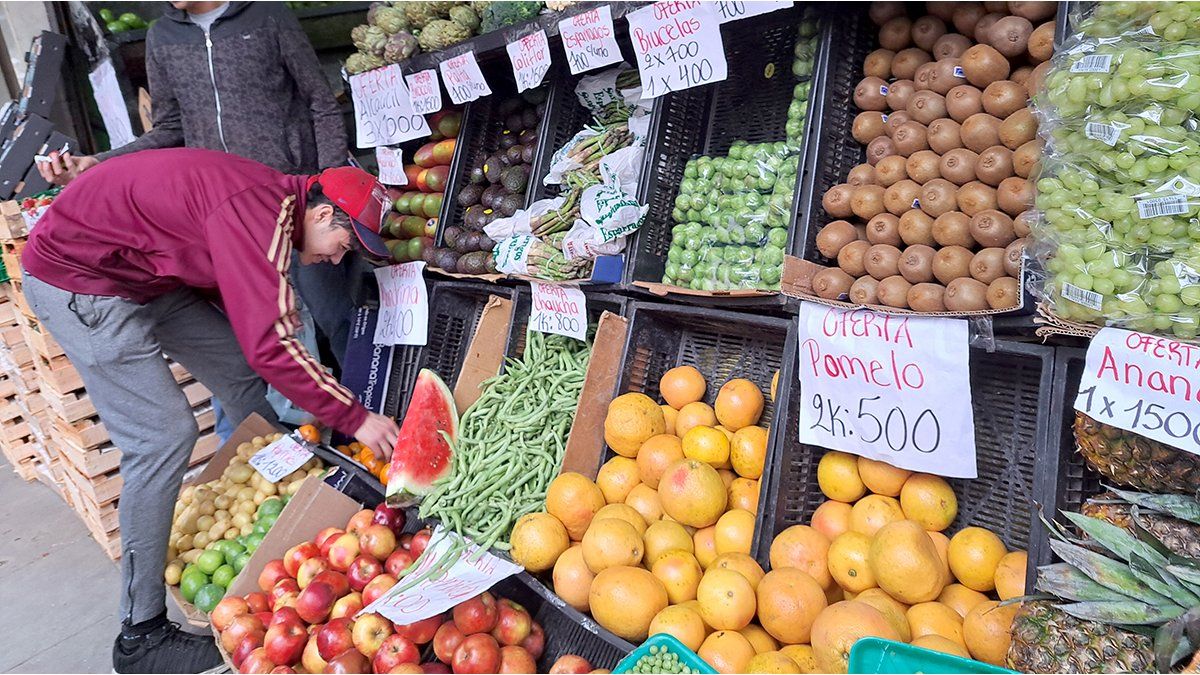In the fourth weekly inflation data published by the Secretariat of Economic Policydirected by Gabriel Rubinstein, inflation corresponding to the last seven days of September it marked 1.3%, which marks a weekly slowdown since the previous data marked 1.7%.
These data open the prelude to the data that will be announced INDEC next Thursday, October 12. According to the weekly survey, the cumulative figure for the month is 7.4%. And the data released by the Secretariat of Economic Policy throughout September in the so-called “Rubinstein” weekly inflation index are: of 2.1% in the first week of the month, 2% for the second week and 1.7% between the 18th and 24th of the ninth month of the year and 1.3% for the week from 09/25 to 10/01.
But that 7.4% will not be the figure that will finally be released by the National Institute of Statistics and Censuses, but rather it is expected to be around 11%, according to private consultants.
However, the data released by Economía serves as a reference for the behavior of the index. Thus, Rubinstein made it explicit when he pointed out: “Inflation is going down. There is no doubt about it. With a Primary Fiscal Surplus and dollars to reduce exchange gaps, it could go down much more.”
“In this way, despite inflation continuing at very high levels, the deceleration process is significant”highlights the department in charge of Gabriel Rubinstein.
Disaggregated weekly inflation data
However, “in the weekly survey, the following stand out for increases to the average (1.3%): Tourism (3.1%), Clothing (2.5%) and Meatless Food and Beverages (1.8%). It is also worth highlighting the weekly decrease in Vegetables (-2.6%), Fruits (-0.2%) and Meats (-0.2%)”the report highlights.
What the private sector expects
As was said, The consultants estimate that September inflation will be below that of August, which reached 12.4%, but they also expect it to remain in double digits.
The survey by the consulting firm Labor Capital and Growth (LCG), headed by Guido Lorenzo, concludes that food increased 0.5% in the last week of September. This translates in a 2.4% deceleration in the rate of increase compared to the previous seven days and marks the lowest weekly inflation rate since the beginning of July.
However, it indicates that food prices registered a monthly increase of 8.2% on average in the last four weeks and an increase of 6.8% from end to end in the same period of time.
According to LCG, Only in the fourth week of September, the products that increased the most were fruits (4.2%), vegetables (3.8%) and dairy products and eggs (2.9%).. Thus, of the 10 categories analyzed, they were located above the weekly average (0.5%) and three were positioned below. The consulting firm concludes that although fruits and vegetables increased above the weekly variation, the slowdown in meat (down 2.2%) helped food inflation slow down.
From the consultancy Orlando J. Ferreresthe CPI-OJF (GBA) recorded a price increase of 10.7% monthly and estimates that core inflation advanced at a monthly rate of 11.6%, marking an increase of 140% annually. Thus, the overall accumulated It was 99.9% and the core accumulated 103.1% in September.
They agree on the weekly slowdown, but it remains high
In general, Private parties agree that during the last days of September there was a slowdown in price dynamics. This is also confirmed by the Libertad y Progreso Foundation, which, in its report, maintains that, “in the month of September, the CPI showed an increase of 11% monthly. The “Food and non-alcoholic beverages” category showed an increase of 10.2%, with an impact of 2.4 pp on the index.
From Eco Go, it assures that the prices of food and beverages registered a slight acceleration last month, after the 12.7% registered in August by the consulting firm, “impacting the strong drag left by the increases that occurred after the PASO and the devaluation” of August 14.
Source: Ambito




